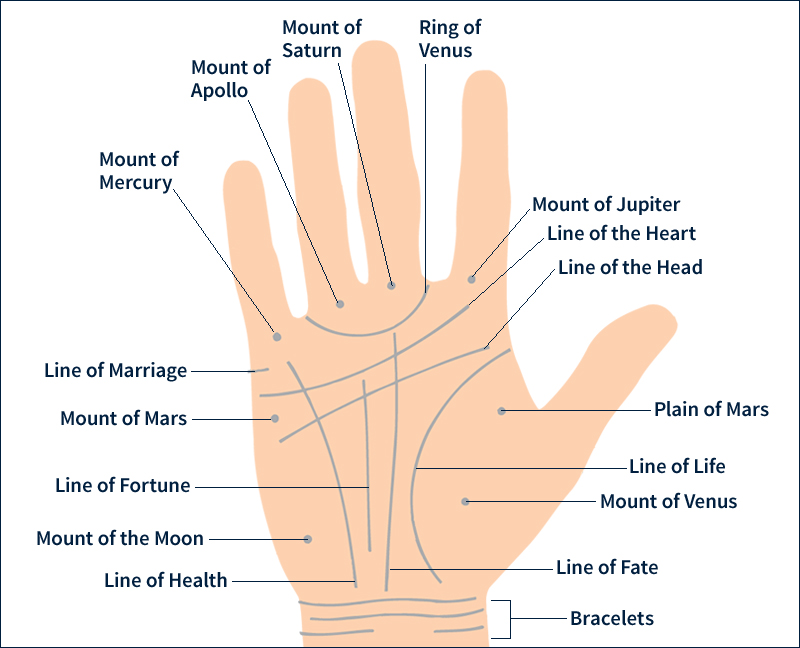Fortunetelling is the practice of predicting future events using special techniques that include astrology and palmistry and such ritual objects as tarot cards and crystal balls. People who claim to foretell the future are called fortunetellers, psychics, or readers. Some of these techniques of prediction are complex, and fortunetellers often claim they are scientific. But most scientists do not consider them to be scientific.
Some fortunetellers say they possess a form of clairvoyance that makes them aware of events before they occur. Clairvoyance is the knowledge of events, objects, or people without using any known senses. Scientists do not know whether clairvoyance actually exists. However, most fortunetellers do not claim to have clairvoyant powers.
Fortunetelling has been especially popular during certain periods of history. For example, the ancient Greeks and Romans believed the gods spoke to them through prophets called oracles. Many people went to oracles for advice about the future. In later times, the Christian church discouraged fortunetelling. However, astrology, an ancient type of fortunetelling, became extremely popular in Europe during the Renaissance, the period from about 1300 to about 1600. Some forms of fortunetelling remain popular today in modern Western cultures as well as in more isolated societies and less-developed countries. Most Americans regard fortunetelling as a form of amusement, but many people believe in it sincerely.
Methods of fortunetelling.
Throughout history, hundreds of different fortunetelling methods have been used. One of the most famous methods involves gazing into a crystal ball. Many methods of fortunetelling seem to depend entirely on chance. For example, fortunetellers have made predictions based on the order in which a rooster ate grains of wheat placed on letters drawn on the ground. Predictions also have been based on the shape taken by oil poured on water, or on segments of writing chosen from a book at random.
However, fortunetellers claim that mysterious causes and relationships, not chance, make their predictions possible. For example, astrology is based on the belief that the sun, moon, planets, and stars control people’s lives. Therefore, astrologers claim that the positions and movements of these bodies supposedly can be used to predict the future.
Other fortunetelling systems include numerology and palmistry. In numerology, a fortuneteller makes predictions through numbers based on a person’s name and birth date. In palmistry, a fortuneteller tries to foresee an individual’s future by studying the lines, markings, shape, and the size of the person’s hand.

Risks of fortunetelling.
Today, fortunetellers may be genuinely committed to helping people or mainly concerned with making money. Fraud committed by some fortunetellers has resulted in legal restrictions on fortunetelling in many cities and states. Some fortunetellers only pretend to rely on the various methods they use. These fraudulent fortunetellers may actually rely more on a broad range of knowledge about human behavior. For example, some fortunetellers know what most people prefer to hear and thus make statements about the future that fit those expectations. They may also make general statements about the future that are unclear and can apply to almost anyone.
Americans spend millions of dollars annually on fortunetelling. People may visit fortunetellers on a whim, for entertainment, or out of a genuine need for psychological help or to help find meaning in their lives. Many of them find their visits to fortunetellers therapeutic and helpful. Some people may use the information they receive from the fortuneteller to help them make decisions about relationships and careers.
